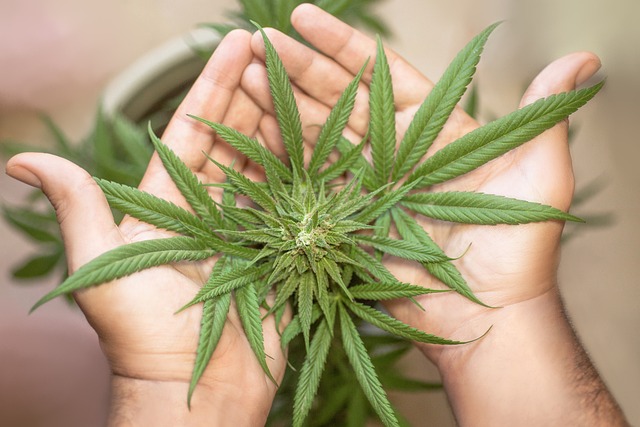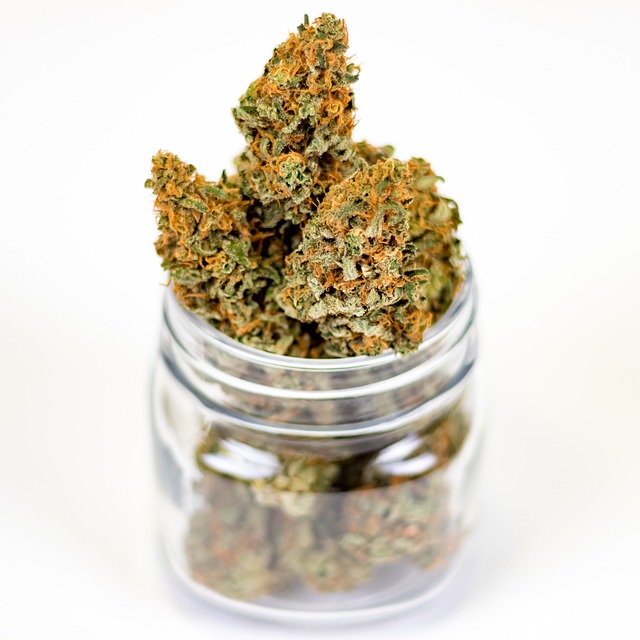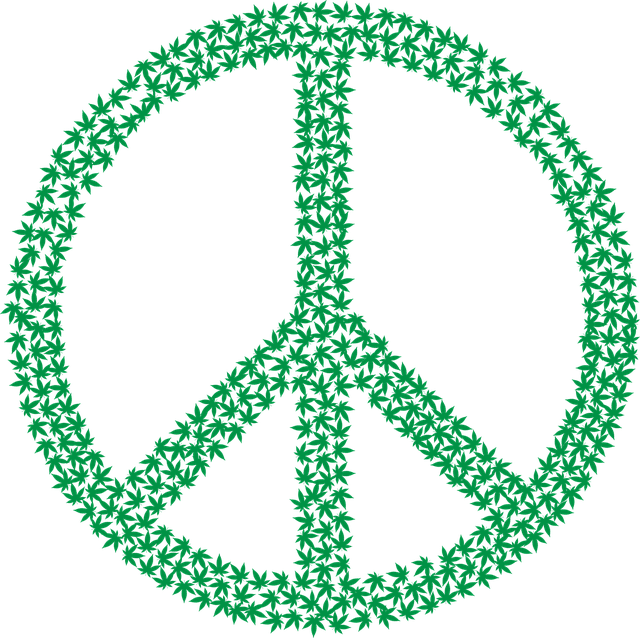THCA (Tetrahydrocannabinolic Acid), a non-psychoactive compound found in raw cannabis plants, has gained attention for its potential health benefits and its legal status in Hawaii. In Hawaii, THCA is legal under both state medical cannabis laws and the 2018 Farm Bill, which allows hemp-derived products containing less than 0.3% THC on a dry weight basis. While THCA itself is not psychoactive, it can convert into THC with heat or light, and high doses of THCA may produce mild psychoactive effects. Users in Hawaii should be aware of the legal framework and personalize their consumption based on individual sensitivity, as overconsumption can lead to adverse effects like anxiety or psychotic episodes. It's crucial for consumers to start with low doses and consider consulting healthcare providers, especially if they have pre-existing health conditions or are taking other medications. Navigating the evolving legal landscape of THCA in Hawaii requires careful attention to both state and federal regulations to ensure safe and responsible use within the medical cannabis market.
Exploring the multifaceted implications of THCA flower within Hawaii’s legal framework, this article unravels the nuances surrounding its usage and potential effects. As we delve into the legality of THCA flower in Hawaii, readers will gain a comprehensive understanding of how it fits into local laws. Subsequently, we examine the various side effects associated with THCA flower consumption, providing insight into both the positive and negative impacts. Finally, we navigate the critical considerations for safe usage and appropriate dosage to ensure a well-informed experience. Key insights on the legal status of THCA in Hawaii and its side effects are highlighted throughout this enlightening piece.
- Understanding THCA Flower and Its Legal Status in Hawaii
- Exploring the Potential Side Effects of THCA Flower Consumption
- Navigating the Safety and Dosage Considerations of THCA Flower in Hawaii
Understanding THCA Flower and Its Legal Status in Hawaii

In recent years, there has been a significant interest in the therapeutic potential of cannabinoids, with THCA (Tetrahydrocannabinolic Acid) being at the forefront of this exploration. THCA is the raw, non-psychoactive precursor to THC (Tetrahydrocannabinol), and it has been studied for its potential health benefits without the psychoactive effects associated with THC. Understanding THCA flower involves recognizing that it contains THCA in abundance, which can be converted into THC when exposed to heat or light. This unique characteristic makes it a subject of interest for both researchers and consumers looking for wellness benefits without the ‘high’ typically associated with cannabis consumption.
The legal status of THCA flower in Hawaii is nuanced, reflecting a complex interplay between state and federal regulations. As of the latest updates, Hawaii has a medical cannabis program that allows patients with qualifying conditions to legally access cannabis products, including those containing THCA. The Hawaiian Compassionate Use Act legalized the use of medical marijuana in 2000, and subsequent legislation has further refined the laws to include various forms of cannabis derivatives. Notably, the 2018 Farm Bill legalized hemp-derived products at the federal level, which includes THCA that is derived from hemp strains containing less than 0.3% THC on a dry weight basis. This legislation has clarified the status of THCA flower in Hawaii, where it is considered legal provided it adheres to these federal guidelines. Consumers and manufacturers must stay informed about the evolving regulations to ensure compliance with both state and federal laws regarding THCA products.
Exploring the Potential Side Effects of THCA Flower Consumption

THCA, or tetrahydrocannabinolic acid, is a non-psychoactive cannabinoid found in the Cannabis sativa plant that is known to convert into THC, the primary psychoactive component of cannabis, when heated or decomposed. As interest in cannabinoids grows, so does the curiosity around their effects, including those of THCA. While THCA is legal in Hawaii under certain conditions, it’s important for consumers to be aware of its potential side effects upon consumption.
Reports from users and studies suggest that THCA can induce a range of effects. These may include mild psychoactive effects, even though the compound itself is non-psychoactive. This paradoxical response could be due to the way THCA interacts with the body’s endocannabinoid system. Side effects typically associated with higher doses or the conversion of THCA into THC might include dizziness, anxiety, paranoia, and a rapid heartbeat. It’s also worth noting that individual experiences with THCA can vary widely, depending on factors such as dosage, the method of consumption, and an individual’s unique physiology. Users are encouraged to start with low doses to gauge their sensitivity and proceed cautiously. As with any substance, understanding the legal status, potential effects, and personal tolerance is crucial for safe and informed use.
Navigating the Safety and Dosage Considerations of THCA Flower in Hawaii

Navigating the safety and dosage considerations of THCA flower consumption in Hawaii requires a clear understanding of its legal status and potential effects. THCA, or tetrahydrocannabinolic acid, is a non-psychoactive cannabinoid found in raw cannabis plants, which, when heated, converts into the psychoactive THC. In Hawaii, THCA-rich flowers are legal for medical use, with patients holding a valid card being able to access these products. It’s crucial for users to be aware of the dosage as excessive consumption can lead to adverse effects such as anxiety, paranoia, or acute psychotic reactions. Moreover, individual sensitivity to THCA varies, and factors like body chemistry, tolerance level, and cannabis strain potency all influence the experience. Users should start with a low dose to gauge their reaction and gradually increase as needed, always in a safe, controlled environment. Consultation with a healthcare provider is advisable before incorporating THCA flower into one’s regimen, especially for those with pre-existing health conditions or those taking other medications. By adhering to recommended dosages and understanding the legal framework surrounding THCA in Hawaii, consumers can safely explore the potential benefits of this cannabinoid.
In light of the information presented, it’s clear that THCA flower, while holding legal status in Hawaii, offers both therapeutic and potential side effects. Users should approach its consumption with care, considering dosage and individual sensitivity. The exploration of THCA’s effects underscores the importance of responsible use within the framework established by state laws. As with any substance, understanding the nuances of THCA flower is key to safely harnessing its benefits, which can be a significant aspect of well-being for many in Hawaii. Navigating these considerations ensures that individuals can make informed decisions, contributing to the responsible use of THCA within the legal context provided by state regulations.
